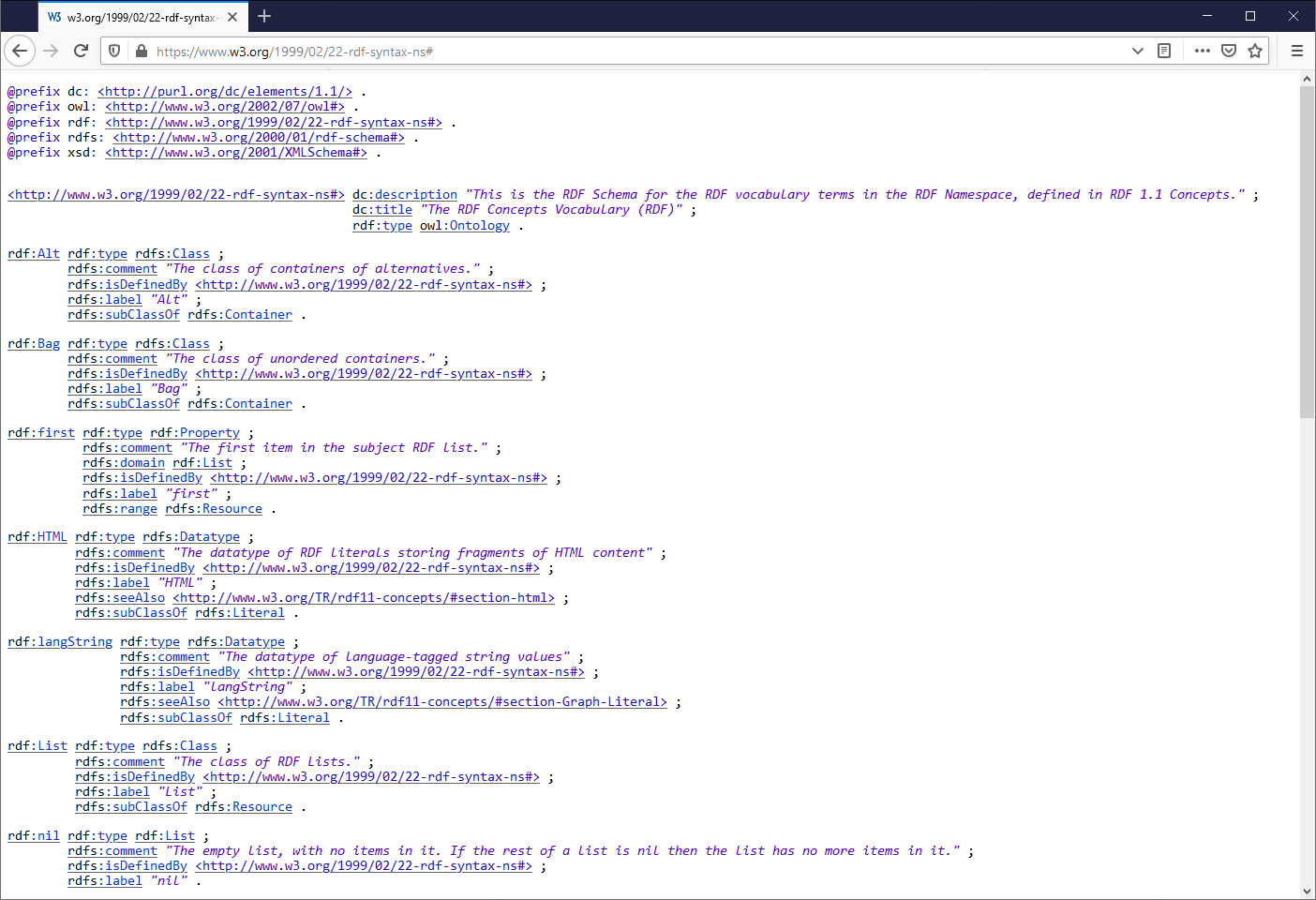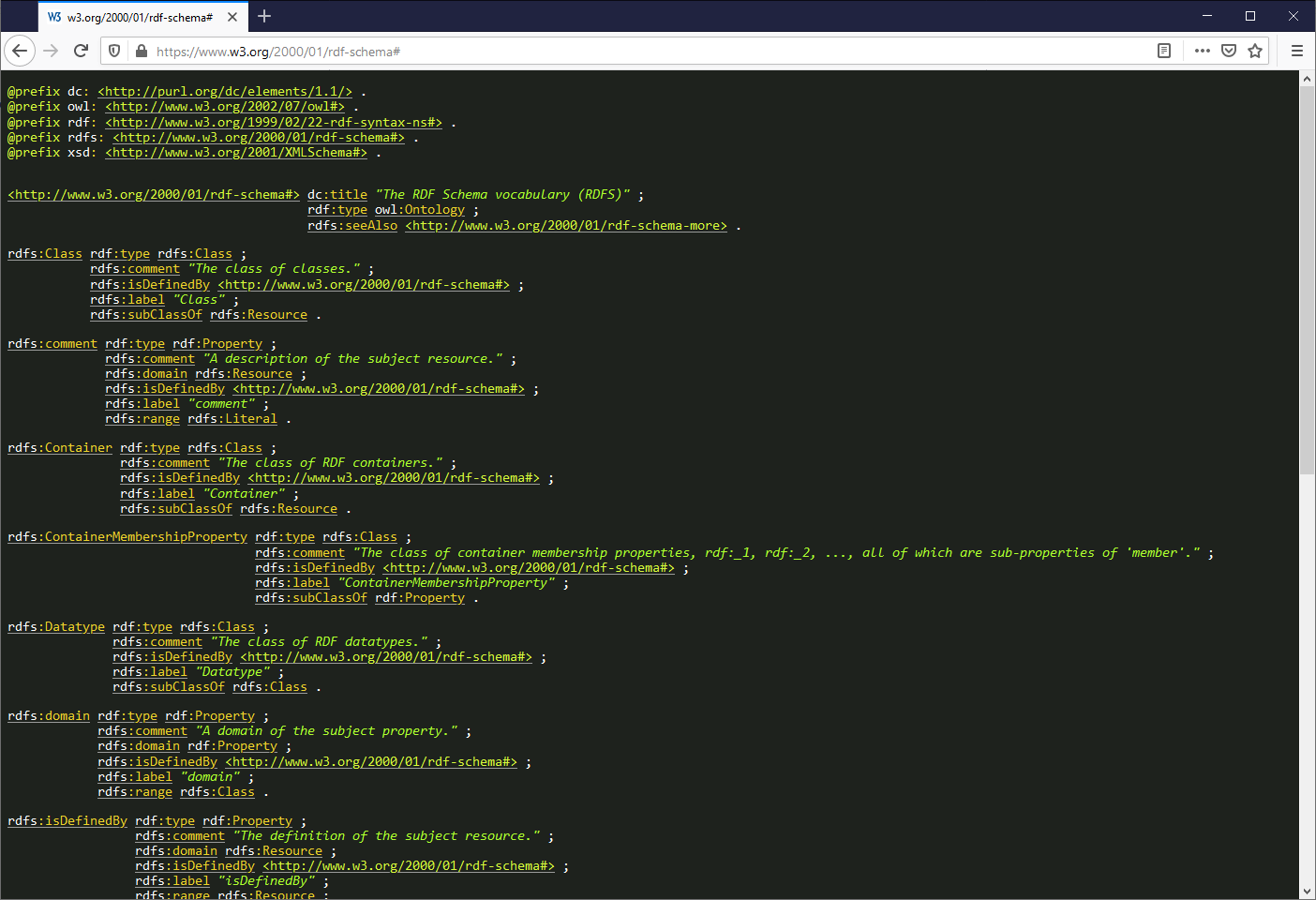RDF Browser
Request RDF files and render RDF files as Turtle documents with clickable links
What is RDF Browser?
RDF Browser is a Firefox add-on released and maintained by the Chair of Technical Information Systems at Friedrich-Alexander-University Erlangen-Nürnberg. It enables users to request RDF files and renders them as Turtle documents with clickable links.
Stats
Rating: 4.80
(10)
Creation date: 2019-10-14
Weekly download count: 5
Firefox on Android: No
Risk impact: High risk impact
Risk likelihood: Low risk likelihood
Manifest version: 2
Permissions:
- storage
- webRequest
- webRequestBlocking
- <all_urls>
- tabs
- webNavigation
Size: 227.72K
URLs: Website
Stats date:
Chrome-Stats Rank
Other platforms
Not available on Chrome
Not available on Edge
Want to check extension ranking and stats more quickly for other Firefox add-ons?
Install
Chrome-Stats extension
to view Chrome-Stats data as you browse the Firefox Browser Add-ons.
Summary
This Add-on includes the following functionality:
- Change the browser's accept-header to include the following content-types:
- application/ld+json
- application/n-quads
- application/n-triples
- application/rdf+xml
- application/trig
- text/turtle
- Render the payload of HTTP responses with above-listed content-types as Turtle documents with clickable links
The Add-on is released and maintained by the Chair of Technical Information Systems at Friedrich-Alexander-University Erlangen-Nürnberg.
User reviews
by Firefox user 17239386, 2024-01-17
Safety
Risk impact
RDF Browser is risky to use as it requires a number of sensitive permissions that can potentially harm your browser and steal your data. Exercise caution when installing this add-on. Review carefully before installing. We recommend that you only install RDF Browser if you trust the publisher.
Risk likelihood
RDF Browser has earned a fairly good reputation and likely can be trusted.
Upgrade to see risk analysis details


